This is an amended version of a series originally published on my Instagram account @labmuffinbeautyscience.
As science has gotten more trendy, scientism is starting to show up more in beauty marketing and the beauty community.
Scientism, which I call “science-washing” (although apparently no one says that except me, but I’m vainly trying to make it happen) is science used in excess. It includes:
- using science in areas where science can’t tell you the answer
- making claims beyond what the evidence shows
- eagerness to accept claims that seem scientific without critical appraisal
Scientism is a form of pseudoscience that is a bit trickier to spot, because it likes science. No – it loves science. Too much. Science wants to try being friends first, but scientism has ordered their wedding cake and named their 5 grandkids already.
Philosopher Susan Haack has come up with 6 signs of scientism, and I think they highlight some of the common issues that arise in the beauty community when it comes to discussing the science behind beauty products, particularly skincare.
As Haack wrote: “we need to avoid both under-estimating the value of science, and over-estimating it.”
Science is great. I’m obviously a huge fan of science. But just because we like science doesn’t mean we should accept it uncritically. Scientism turns people off science because it’s rather dogmatic and evangelical, so it’s counterproductive.
⠀
Here is my take on the signs of scientism, as you’ll see them in the beauty community (note: I have no philosophy background, please forgive my feeble attempts).
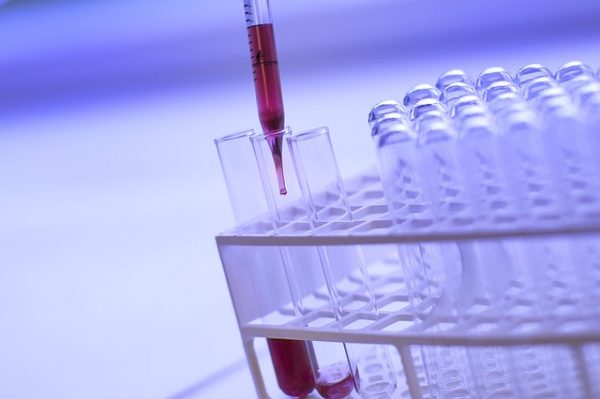
1. Using the words “science”, “scientific”, “scientifically”, “scientist” etc., honorifically, as generic terms of epistemic praise.
This is the appeal to authority fallacy – just because something is associated with science doesn’t mean it’s:
- associated with “good”, robust science
- answerable by the current scientific evidence
- answerable by science at all
- actually supported by science⠀⠀⠀⠀⠀⠀⠀⠀⠀
Examples:
“There’s scientific evidence that X ingredient works” (instead of “convincing/robust evidence”)
Scientific evidence is never all equal.
There are in vitro studies (usually on cells) and there are animal studies, there are clinical trials on humans and there are observational studies, there are peer-reviewed studies and there are manufacturer studies, there are different clinical end points and selection criteria and sample sizes and treatment protocols… and that’s only the tip of the iceberg. Just because a study exists doesn’t mean that the product is “science-based”.
Not only that, the relevance of scientific evidence to a particular situation isn’t black and white – just because there’s strong evidence that tretinoin works for some forms of acne doesn’t mean that X brand’s 1% retinol cream will work for your skin specifically.
“Scientifically proven”
Science doesn’t prove ideas – it builds evidence to support theories, but absolute proof doesn’t happen.
There are things where the scientific evidence is so strong that it would take an unbelievable amount of evidence to show the opposite (e.g. the Earth is not carried on the back of a giant turtle, homeopathy doesn’t work). But this is almost never the case in beauty and skincare – “scientifically proven” is usually just a marketing phrase that means that someone somewhere may have done a survey at some point.
“I’m a scientist/doctor, therefore you should just take my word for it”
This is the classic appeal to authority fallacy – just because someone is a scientist doesn’t mean that:
- what they say is supported by scientific evidence, or that
- what they say outside of the realm of science is more sensible/rational/whatever than what anyone else says.
See e.g.
- Linus Pauling (Nobel Laureate chemist who believed enough vitamin C could cure anything)
- James Watson (Nobel Laureate biologist who still believes that black people have lower IQs, despite all opposing evidence)
- Andrew Wakefield (former doctor, father of the anti-vax movement)
- Doctor Oz (a 2014 BMJ study found that less than ⅓ of his advice was backed by believable evidence)
I find myself accidentally using these phrases sometimes, mostly out of laziness – it’s a bad habit, and a hard one to shake!
(On a related note, since the appeal to authority is convincing, I’m firmly of the opinion that if you’re a scientist or doctor making statements about science, you have a responsibility to factcheck, and be clear when you’re saying something that’s supported by the evidence, or if it’s just your hunch… but that’s an opinion piece for another time.)
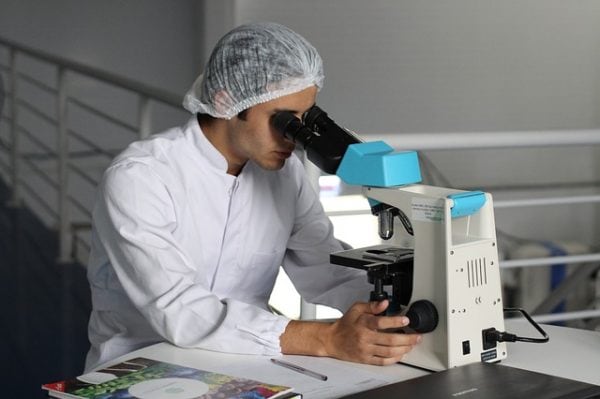
2. Adopting the manners, the trappings, the technical terminology, etc., of the sciences, irrespective of their real usefulness.
This is where things that SEEM sciencey are used, even when they aren’t actually all that scientific or appropriate.
“Scientific” methods
It’s really tempting to focus only on measurable facts when it comes to something as subjective and variable as how well beauty products work, even in situations where hard data isn’t as useful and relevant as someone’s subjective experience when using a product.
Examples in beauty and skincare:
- Reviewing products by looking at their ingredient lists without actually trying them out – sometimes without even seeing the product in person!
- Using comedogenicity ratings to choose products, even when they’ve been found to not reflect real life experience. Also: throwing products out because of the comedogenicity ratings, even if they were fine before.
Related post: How to Use Comedogenicity Ratings (with Video)
- Favouring the precision of pH probes over the accuracy of pH strips. Precision without accuracy is like when you know the time someone was born, but not the year. Also using pH meters with unsuitable samples (too thick, emulsions with oils on the outside).
- Evaluating sunscreen effectiveness by the percentages of active ingredients or trying to predict UVAPF using the BASF Sunscreen Simulator, rather than looking at the labelled SPF
- Looking solely at active ingredient percentages to decide whether or not a product is good value
“Scientific studies have shown…”, followed by stuff that the studies did not show
Scientism often shows up when papers and studies are referenced, without understanding their relevance to the topic at hand. Unfortunately scientific literature isn’t all that easy to understand!
Examples:
- When in vitro data is used as evidence to support something working on skin, or being harmful to skin. Cells isolated in glass wells don’t work the same as skin!
- Quoting abstracts of papers without reading the actual paper. Abstracts don’t often accurately capture the nuances of the information inside the paper, and aren’t meant to be a substitute for the full paper – they’re often made to sound “juicier” so that you’ll be enticed to read the full paper.
- Assuming that “significant improvement” means “large improvement”. In scientific papers, “statistically significant” doesn’t mean significant in the normal sense of the word.⠀⠀⠀⠀⠀
- Ignoring whether the dose used in a study is realistic with normal use. The quantities used in many studies (especially animal studies) are much higher than you would encounter in real life, so it’s often unrealistic to expect the same effects in real life.
- Using the number of studies cited as an indication of how believable a claim is, even if the studies aren’t relevant or have methodological problems. Quality is more important than quantity!
Not questioning things that sound technical and “sciencey”
There’s also a bias that we have towards repeating and not questioning things that sound more technical:
- Use of fancy terminology that isn’t actually used by dermatologists or scientists (“sebaceous filaments” “fungal acne” “moisture and hydration are different” “moisture barrier”)
- Counter-intuitive advice, like that SPF 50 is only a little bit better than SPF 30, or that chemical sunscreens need to sink in and activate to work
Related Post: Top 7 Sunscreen and SPF Myths
3. A preoccupation with demarcation, i.e., with drawing a sharp line between genuine science, the real thing, and “pseudo-scientific” imposters
(Note: Haack’s explanation of this focused on “hard” sciences calling the “soft” sciences pseudoscientific, so I’ve deviated from the original source to fit it into the beauty context.)
Sometimes there’s a tendency for people to quickly dismiss brands as pseudoscientific if they’ve said anything inaccurate in the past. Every once in a while I get asked, “How can you use X brand when they said Y in the past? Aren’t you a scientist? Are you being paid to endorse them?”
My answer: if I cancelled every brand that said anything unscientific in the past, I’d be using maybe 1 product. And I’d have to cancel myself.
The problem is, this situation is rarely that black and white. It’s actually really difficult to stay 100% accurate on the science all the time.
There are a few reasons for this. The big ones:
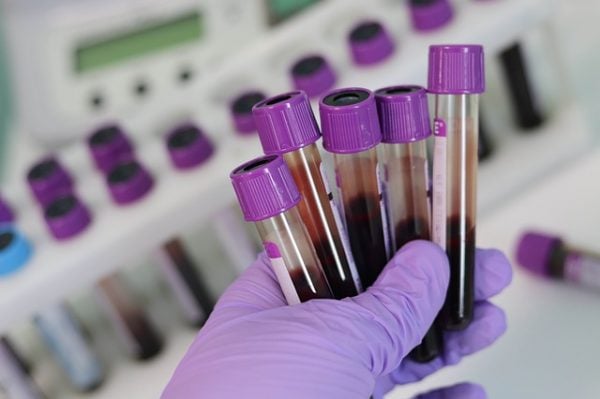
1. Science is always evolving.
Cosmetics and skincare isn’t a really well-researched field, so a single high-quality study can massively change what we know about particular ingredients or formulations. One of the best things about science is that it changes with changing evidence.
2. There is a LOT of skincare science.
I said skincare wasn’t well-researched, but there’s still a metric buttload of studies. Expecting everyone to get it right every time is unrealistic (although I don’t think it’s too much for brands to get basic and regulation-related things right).
3. Marketing.
While a brand might very well know that mineral oil is fine, they’d be putting themselves at a massive disadvantage if they didn’t note that their product is “free from mineral oil” when all of their competitors do. Most people who buy beauty products aren’t savvy enough to to through the ingredients list, or even search for better information on “toxic” ingredients (though I hope this is changing!).
So while I’m hesitant to use and feature brands that cross the unscientific/fearmongering line too frequently or in a way that encourages unsafe behaviour, I don’t see the point in a hard-line stance like “I only use scientific skincare products”.
I’m skipping Sign 4 because it’s about the scientific method, which isn’t really important in the context of beauty.
5. Looking to the sciences for answers to questions beyond their scope.
6. Denying or denigrating the legitimacy or the worth of other kinds of inquiry besides the scientific, or the value of human activities other than inquiry, such as poetry or art.
I’m combining signs 5 and 6 because they’re very strongly connected to each other.
“According to science, is X product worth it?”
This question isn’t really answerable by science.
I think it’s become a bit trendy to dismiss things in skincare and beauty that don’t have an obvious active function, or a lower concentration than a cheaper product as “pseudoscience”, or a rip-off, or full of “inactive fillers”. But the amount of active ingredients and the INCI list – whether the product is going to work, at the basic level – is only one consideration when you’re looking for a product.
Here’s an analogy: food.
Sure, the most basic raw ingredients are probably going to be the cheapest. But can you work out how much you enjoy a meal just from that? Will the lasagne with 0% water be the one you enjoy eating the most? Will the lasagne with the most protein be the one that’s the best value for money, even if it tastes awful?
Considerations like packaging, convenience, scent and texture are important. There’s no point in buying a product that you won’t use because it’s too fiddly, smells bad, is hard to spread, or burns your skin because it’s too concentrated. Science can tell you if it’s likely to work, but it can’t tell you if something is worth it to you personally.
Final note
Keep in mind that all of this doesn’t mean that science doesn’t belong in beauty and skincare! It definitely does. Anecdotal evidence is always less reliable than clinical trials, and in vitro studies can do an awesome job of explaining some things… but science only works when it’s relevant, when the right bits are used, and with recognition of its limits.
References
Hill S at Skeptical Inquirer, Over-reliance on Science
Haack S, Six signs of scientism, Logos and Episteme 2012, 3, 75-95. DOI: 10.5840/logos-episteme20123151


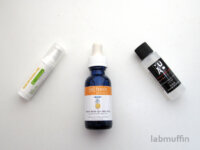
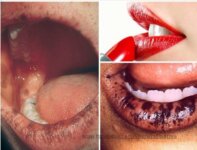

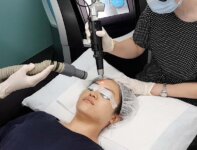
I guess I use a ton of the phrases you mention above when I talk about beauty stuff – I need to work on my lingo.
Anne|Linda, Libra, Loca